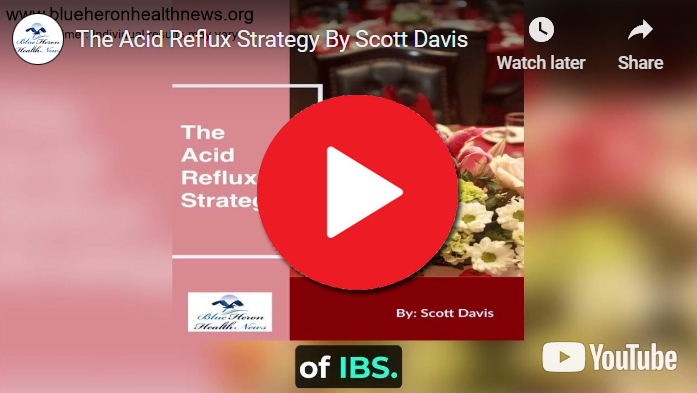
Acid Reflux Strategy™ By Scott Davis According to this eBook, you can start removing the symptoms of acid reflux and other similar problems just by making some changes in your diet, levels of stress, and lifestyle. It will guide you on how to change from the combination of food items to the sleep positions to relieve your problems. It also includes a list of food items you should focus on while shopping for it to find a natural treatment for your symptoms.
How can meal timing affect acid reflux?
Meal timing plays a significant role in managing acid reflux, also known as gastroesophageal reflux disease (GERD). The timing of meals can influence the likelihood of experiencing reflux symptoms such as heartburn, regurgitation, and discomfort. Here are several ways meal timing can affect acid reflux:
1. Eating Close to Bedtime
One of the most common recommendations for managing acid reflux is to avoid eating close to bedtime. Lying down soon after eating can increase the risk of acid reflux because it makes it easier for stomach contents, including acid, to flow back into the esophagus. Gravity helps keep acid in the stomach when you’re upright, so it’s generally advised to avoid eating at least 2-3 hours before going to bed. This allows enough time for the stomach to partially empty, reducing the amount of acid that can potentially reflux.
2. Large Meals and Timing
Consuming large meals can exacerbate acid reflux symptoms. When the stomach is full, it can create pressure on the lower esophageal sphincter (LES), the muscle that separates the stomach from the esophagus. This pressure can cause the LES to relax or open inappropriately, allowing stomach acid to escape into the esophagus. To minimize this risk, it’s recommended to eat smaller, more frequent meals throughout the day instead of a few large meals.
3. Spacing Out Meals
Spacing out meals appropriately can help manage acid reflux symptoms. Eating meals too close together can keep the stomach full for a prolonged period, increasing the likelihood of acid reflux. Allowing time between meals for the stomach to empty can reduce the pressure on the LES and minimize reflux episodes. Typically, waiting about 3-4 hours between meals is recommended.
4. Snacking Habits
While small, frequent meals can help manage acid reflux, it’s important to be mindful of snacking habits, particularly in the evening. Eating snacks high in fat, sugar, or acidity close to bedtime can exacerbate reflux symptoms. Choosing low-acid, low-fat, and easily digestible snacks, and consuming them at least a few hours before lying down, can help prevent nighttime reflux.
5. Meal Composition and Timing
The composition of meals can also impact acid reflux, and this is closely tied to timing. For example:
- Fatty Foods: High-fat meals slow gastric emptying, meaning the stomach takes longer to empty its contents into the small intestine. This can increase the risk of acid reflux, especially if a high-fat meal is consumed close to bedtime.
- Acidic and Spicy Foods: These foods can irritate the esophagus and may worsen symptoms if consumed in large amounts or close to bedtime.
6. Exercise Timing
Physical activity can influence acid reflux, particularly if done immediately after eating. Exercise can increase abdominal pressure, which may promote reflux. It’s generally recommended to wait at least an hour after eating before engaging in exercise, especially vigorous activities. Gentle activities like walking, however, can help with digestion and reduce reflux symptoms.
7. Meal Timing and Body Weight
Consistent meal timing and avoiding late-night eating can help maintain a healthy weight, which is important for managing acid reflux. Excess weight, especially around the abdomen, can put pressure on the stomach and LES, leading to increased reflux. Regular meal patterns can help with weight management, reducing this pressure and potentially decreasing reflux symptoms.
8. Personalized Meal Timing
Individual responses to meal timing can vary. Keeping a food and symptom diary can help identify specific patterns and triggers related to meal timing and reflux. Some people may find that eating earlier in the evening or spacing meals differently provides significant symptom relief.
Meal timing is a crucial aspect of managing acid reflux. By avoiding large meals and late-night eating, spacing out meals appropriately, and being mindful of meal composition and exercise timing, individuals can reduce the frequency and severity of reflux symptoms. Adopting these practices can contribute to better overall management of GERD and improve quality of life.
Acid Reflux Strategy™ By Scott Davis According to this eBook, you can start removing the symptoms of acid reflux and other similar problems just by making some changes in your diet, levels of stress, and lifestyle. It will guide you on how to change from the combination of food items to the sleep positions to relieve your problems. It also includes a list of food items you should focus on while shopping for it to find a natural treatment for your symptoms.
